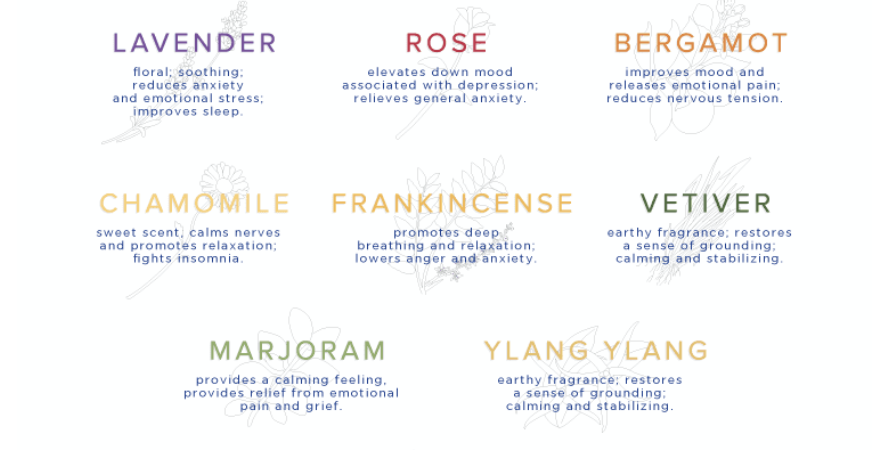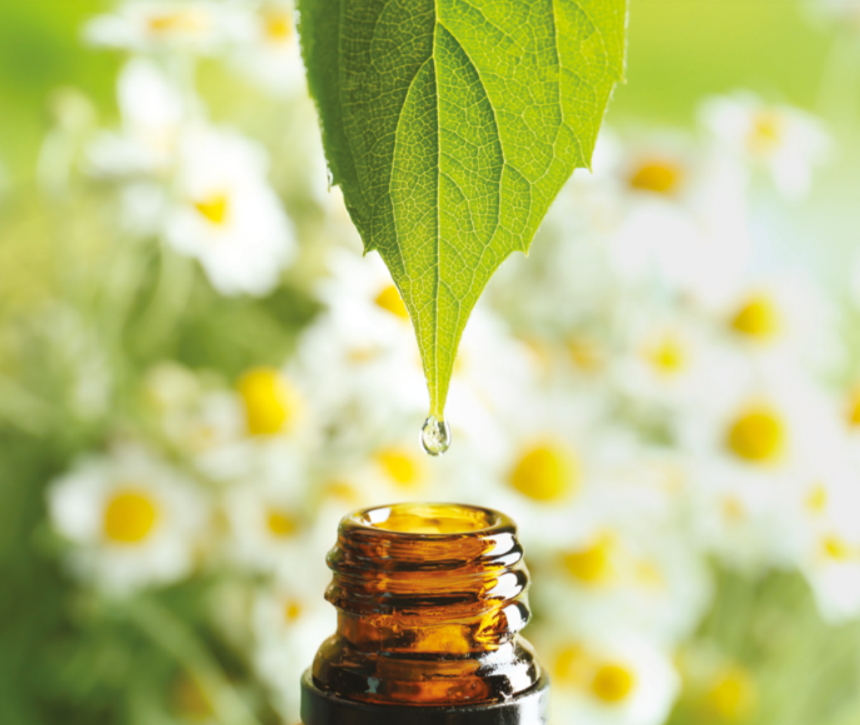Uses for Essential Oils: A-Z Physical and Emotional Wellness
Uses for Essential Oils: Plant Therapy Essential oils are pure oils extracted from various botanicals, like plants. Essential oils have been used for their healing properties for thousands of years. They offer many benefits, each dependent on the plant they are derived from.
|
So, you’ve heard about the many great benefits that essential oils could have for you. Congratulations! You’re well on your way to a better you. Now, you just need to figure out the best uses for essential oils for YOU.
This varies based on the type of oil, what it’s being used to treat, and the tools you have available to you. In this article, I’ll walk you through the many different essential oil applications to help you figure out how to use your essential oils to get the most out of them. |
Uses for Essential Oils: Plant Therapy Single Oils A-Z
A-B
Allspice: Alleviates stiffness and cramping
Amyris: Known as an aphrodisiac, also relieves congestion, reduces fine lines in skin
Basil: Mental alertness, supports sore muscles/joints, menstruation
Bergamot: Skin purifying, emotional support
Black Pepper: Antioxidant, reduce cigarette cravings, supports healthy circulation, flavoring
Black Spruce: Stress management, calming, soothing to skin, reduces skin irritation
Blue Tansy: Soothing sensation to skin, reduces skin blemishes
Buddha Wood: Perfect for enriching meditation practices and promoting clarity and mindfulness
C
Cardamom: Supports healthy digestion, respiratory health, cooking
Camphor: Used to help clear lungs and boost circulation within your body
Cardamom: Used to help uplift and energize your mood, especially when dealing with stress, fatigue, or feelings of depression
Carrot Seed: Helps with skin rejuvenation as well as digestive and respiratory issues
Catnip: Aids with anxiety reduction and better sleep as well as easing muscle tension
Cassia: Supports healthy cell function, digestion, arousal
Cedarwood: Repels insects, supports healthy skin, emotional support
Chamomile, Roman: Calming, immune healthy immune function
Cinnamon Bark: Supports metabolic function, oral health, cleaning
Citronella: Pest repellant, cleaning, skin and scalp soother, uplifting, stress relief
Clary Sage: Supports healthy hormonal balance, tension, emotional balance, healthy hair, sleep
Clove Bud: Promotes cardiovascular health, oral health, immune health
Common Myrtle: Healthy skin, uplifting, stimulating
Copaiba: Antioxidant, supports cardiovascular/immune/digestive systems, calming, healthy skin
Coriander: Supports digestion, clear skin, sore joints and muscles
Cypress: Soothes muscle tension, energy, uplifting, skin health
D-F
Davana: Eases menses and menopausal symptoms
Dill Weed: Boosts immunity and supports menstrual discomfort
Douglas Fir: Respiratory health, skin health
Elemi: Great for meditation and supports young looking skin
Eucalyptus: Supports healthy respiration, skin, cleansing
Fennel (Sweet): Promotes healthy digestion, metabolism, circulation
Fir Needle: Tranquility, relaxation, soothing massage
Frankincense: Supports healthy cellular health, skin, emotional balance
G-J
Geranium: Healthy skin and hair, calming, insect repellant
Ginger: Digestive support, grounding, cooking, antioxidant
Grapefruit: Cleansing, skin health, healthy metabolism, alertness
Green Mandarin: Supports healthy nervous/digestive/respiratory systems, immune support, uplifting, soothing
Helichrysum: Promotes skin appearance, healthy metabolism
Ho Wood: Promotes calm and relaxation
Jasmine: Skin health, balanced mood
Juniper Berry: Kidney/urinary function, skin appearance/toner, cleansing, stress
Kumquat: Energizing for a morning boost
L-M
Lavender: Universal oil, calming, skin health and recovery, flavoring
Laurel Leaf: Promotes confidence and courage to the body and mind
Lemon: For increasing energy, digestive and respiratory support, cleaning
Lemon Eucalyptus: refreshing and uplifting, invigorating, facial cleanser, cleaning
Lemongrass: Healthy digestion, supports muscles and joints, complexion, insects
Lime: Cleans, detoxifies, energizes, healthy immune function
Magnolia: Anxiety relief, relaxation, soothes skin
Marjoram: Emotional support, muscular support, cardiovascular function
May Chang (Litsea): Uplifting and promotes emotional wellbeing
Melaleuca (Tea Tree): Cleansing, healthy immune function, skin complexion
Melissa (Lemon Balm): Supports healthy immune function, tension and anxiety relief
Myrrh: Cleansing, skin and complexion, emotional balance
Neroli: Anxiety relief, relaxation, soothes skin, uplifting
Niaouli: Eases allergies as well as helps with skin imperfections
Nutmeg: Eases sluggish digestion as well as achy joints
O-P
Orange: Emotional balance, overall health, cleansing/purifying, antioxidants
Oregano: Powerful cleansing agent, healthy immune/digestion/respiratory function
Palmarosa: Supports digestive health as well as lifts mood
Palo Santo: Known for healing and calming
Patchouli: Supports skin health/complexion, grounding, tension
Peppermint: Wonderful for digestive/respiratory function, energy, cooling
Petitgrain: Supports cardiovascular and immune function, antioxidant, sleep
R-T
Ravintsara: Eases congestion and stuffiness
Roman Chamomile: Calming, immune healthy immune function
Rosalina: Eases congestion
Rose: Promotes skin health/complexion, emotional balance
Rosemary: Promotes healthy digestion, respiratory function, healthy hair/scalp
Sandalwood (Australian): Healthy skin, meditation
Spearmint: Promotes digestive health, oral health
Star Anise: Eases hot flashes and supports healthy digestion
Tangerine: Cleansing, healthy immune system, cooking
Tea Tree (Melaleuca): Cleansing, healthy immune function, skin complexion
Thyme: Cleansing, purifying, healthy immune function, insect repellent
Turmeric: Supports healthy glucose and lipid metabolism, healthy nervous and cellular function, immune support
V-Y
Vanilla (Love blend): Rich, creamy, and sweet, cooking/beverages
Vetiver: Calming, grounding, healthy immune function
Wintergreen: Soothes muscles/joints, skin/complexion, emotional support
Yarrow (Blue): Supports metabolic function, immune support, antioxidant, soothing to skin
Ylang Ylang: Promotes healthy skin and hair, antioxidant, calming, increased libido
Yuzu: Supports respiratory health
Hypno-Aromatherapy: Uses for Essential Oils As Anchors in Hypnosis
|
Weight Management: Bergamot, Peppermint, Grapefruit, Ginger, Munchy Stop (blend). Smoking Cessation & Addiction: Pepper, Cinnamon, Clove, Nutmeg, Grapefruit, Lavender, Peppermint, Eucalyptus, Roman Chamomile, Clary Sage, Tarragon, Germ Fighter (blend). Pain Management: Lavender, Roman Chamomile, Peppermint, Frankincense, Copaiba, Muscle Aid (blend). Sleep Concerns: Jasmine, Lavender, Roman Chamomile, Sleep Tight (blend), Sleep Aid (blend). Memory: Rosemary, Lemon, Sage, Brain Aid (blend). Self-esteem: Sandalwood, Vetiver, Bergamot, Ylang Ylang, Self Esteem (blend). Focus & Energy: Lemon, Peppermint, Spearmint, Hocus Focus (blend). |
Stress Management: Vanilla, Lavender, Sandalwood, Orange, Chill Out (blend), Relax (blend).
Feeling Anxious or Depressed: Vetiver, Cedarwood, Geranium, Melissa, Happy Place (blend), Blues Buster (blend).
Sexual Issues: Lavender, Orange, Ylang Ylang, Neroli, Sensual (blend).
Meditation: Ho Wood, Frankincense, Australian Sandalwood, Juniper Berry, Palo Santo, Meditation (blend), Chakra Synergies (blends).
Fears & Phobias: Lavender, Bergamot, Sweet Orange, Vetiver, Atlas Cedarwood, Worry Free (blend), True Expression (blend).
Uses for Essential Oils: How to Apply Essential Oils
1. Through smell. We call this “aromatic” use of essential oils. This includes any application method that helps you experience the aroma of the oil. You can use essential oils aromatically by:
- Diffusing in an essential oil diffuser
- Applying a drop to your hands and inhaling
- Wearing as a personal fragrance
2. On your skin. “Topical” application of essential oils allows the oil to absorb into the skin. Some ways to use essential oils on your skin are:
- Massage
- Apply to targeted areas and rub in
- Add to lotions or moisturizers
3. Ingesting, or “internal” use of essential oils allows the oil to be transported throughout your body. Make sure the essential oil is safe for internal use first, and then try one of these methods:
- Add to a glass of water
- Take in a veggie capsule
- Put a drop under your tongue
Uses for Essential Oils: Aromatically uses for essential oils
Aromatic use of essential oils is especially powerful.
The sense of smell is a tool that can elicit powerful physiological, mental, and emotional responses. Essential oils are quickly absorbed by smell receptors, which have a direct link to the limbic system, which is the part of your brain that stores memories and emotions. Some essential oils induce uplifting or invigorating effects, while others are more calming.
Diffusing is one of the simplest ways to use essential oils aromatically. You can use an essential oil diffuser if you’d like but using essential oils aromatically does not require any special diffusing devices. You can achieve the same health benefits by simply placing a few drops of essential oil in the palm of your hand, cupping it around your nose, and breathing deeply.
Other Ways to Use Essential Oils Aromatically:
- Apply oil to a cotton ball and place in the air vents of your vehicle
- Mix oils in a spray bottle with water and mist over furniture, carpet, or linens
- Add oil to a batch of laundry or to dryer sheets
- Use in household surface cleaners
Uses for Essential Oils: Topically uses for essential oils
Essential oils easily penetrate the skin for localized benefits, making topical (on the skin) application a great way to experience the benefits of essential oils. This is why Plant Therapy works to create potent essential oils that are powerful enough to promote healthy-looking skin, yet gentle enough to use on a daily basis.
When used topically, essential oils can improve complexion and skin tone. They can also be used as part of a soothing massage. Before topical application, be sure to follow all label recommendations and dilution instructions.
Beneficial Areas You Can Apply Essential Oils
- Neck
- Forehead and temples (unless the oil is classified as a “hot oil”)
- Chest and abdomen
- Arms, legs, bottoms of feet
Other Ways to Use Essential Oils Topically
- Add a few drops of oil to a warm bath
- Make a hot or cold compress by soaking a cloth in water, adding essential oils, and then applying to the desired area
- Add oil to a lotion or moisturizer and then apply to skin
Sensitive Areas to be Avoided
- Some facial areas, such as the skin around the eyes
- Eyes and inner ears
- Broken, damaged, or otherwise injured skin
- Genital area
Uses for Essential Oils: Internally (Ingestion) uses for essential oils
When ingested, essential oils directly enter the blood stream via the gastrointestinal tract, where they are transported throughout the rest of the body. Essential oils are readily transported to all organs of the body, including the brain.
Follow professional guidelines for dosage when using essential oils internally.
Effective Methods of Internal Application
- Add essential oils to water, smoothies, milk, tea, or other drinks
- Put a drop under the tongue
- Take in a veggie capsule or add to a small amount of applesauce or yogurt
- Use oils in recipes for cooking or baking to replace fresh or dried herbs and spices (Remember, essential oils are much more potent than dried or fresh herbs and spices, so start with a very small amount. Use a toothpick for particularly potent oils.)
 |
Please reach out to me if you need help with hypnotherapy, or anything else related to your self-care and mental wellness. I am happy to help in any way I can:) Melissa@Know-Stress-Zone.com |

